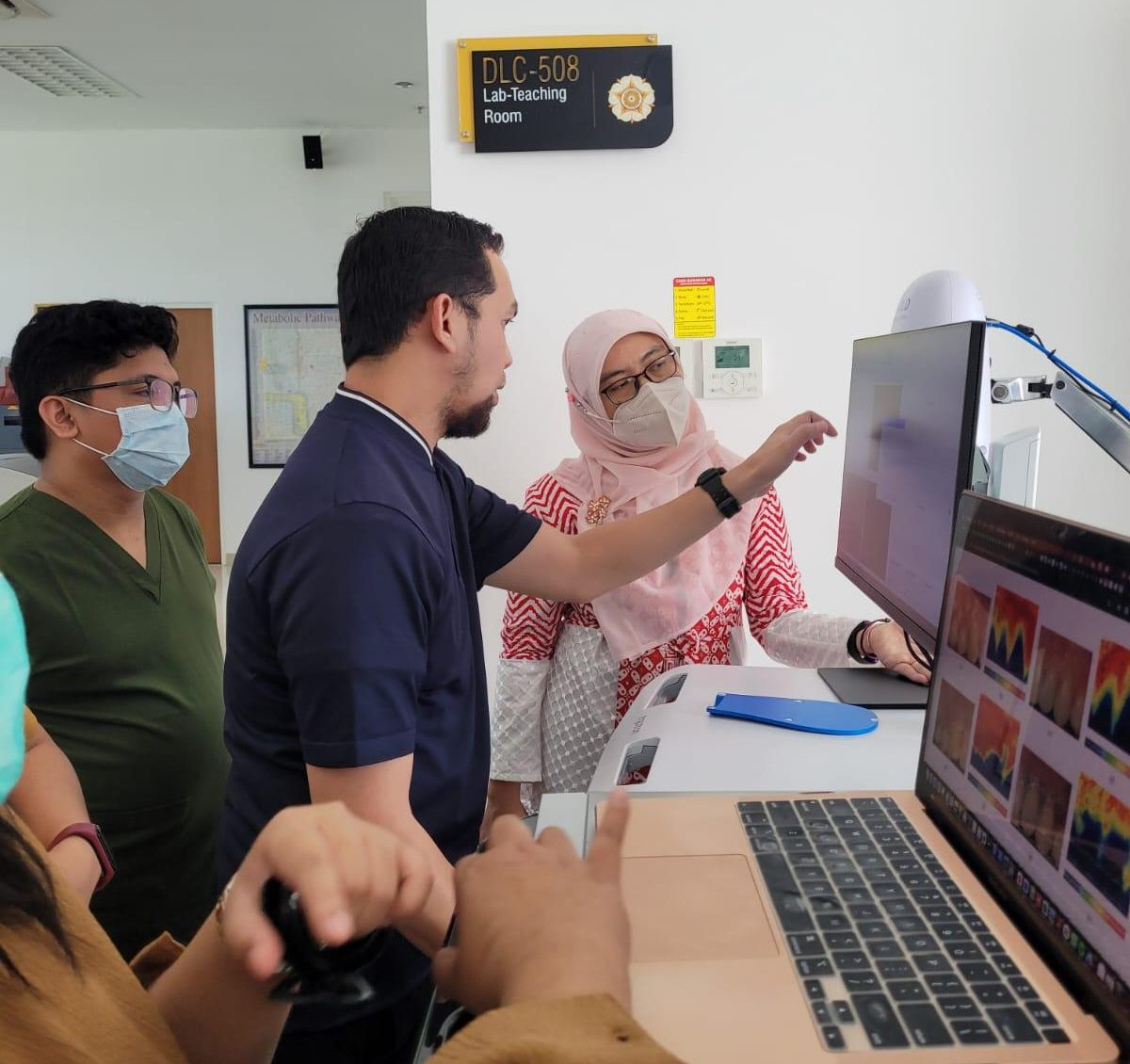On 9 August 2024, the Integrated Research Laboratory of the Faculty of Dentistry, Universitas Gadjah Mada (FKG UGM) held a training session on the Laser Speckle Contrast Imaging (LSCI) System. This event marked an important milestone for the laboratory, which recently received a grant for advanced imaging equipment from the Center of Excellence between Universities (PUAPT) under the Ministry of Education, Culture, Research, and Technology, following a proposal by Prof. drg. Ika Dewi Ana, M.Kes., Ph.D.
The training was officially opened by drg. Trianna Wahyu Utami, MDSc., Ph.D., who expressed her pride in the acquisition of this new equipment. She emphasized the importance of the LSCI system for the Faculty of Dentistry and the broader research community. "We hope this new equipment will benefit the Faculty of Dentistry and all stakeholders, and we must ensure its sustainability," she stated.
The training session was attended by representatives from various departments within the Faculty of Dentistry and laboratory technicians from the Integrated Research Laboratory. The speakers for this event were Muhammad Inam and Ade Elfico from PT. ITS Science Indonesia, who provided in-depth insights into the operation and application of the LSCI system.
The LSCI system is a powerful blood perfusion imaging tool that allows researchers to monitor and record real-time blood perfusion in exposed tissues or organs. This capability is crucial for microcirculation studies, enabling researchers to visualize measured data directly, shorten experimental time, and achieve results more efficiently.
The LSCI system consists of three main components: a laser light source, a sample, and a light detector. The speckle imaging technique detects changes in the intensity of laser speckles scattered by the sample, which are then analyzed as speckle contrast. This innovative technology is expected to enhance research capabilities at the Faculty of Dentistry.
During the training, participants engaged in live demonstrations, allowing them to familiarize themselves with the equipment and its functions. Detailed presentations from the speakers ensured that participants understood the potential applications of the LSCI system in their respective research fields.
The introduction of the LSCI system aligns with the Sustainable Development Goals (SDGs), particularly Goal 4, in the context of quality education in developing countries and capacity building. By equipping researchers with advanced tools, UGM fosters an environment of innovation and excellence in research.
Participants expressed their enthusiasm for this new technology and its impact on their research efforts. The integration of advanced imaging systems like this represents a significant step forward in improving research quality and contributing to the scientific community.
The training on the Laser Speckle Contrast Imaging System at UGM’s Integrated Research Laboratory marks a significant advancement in research capabilities. It reaffirms FKG UGM's commitment to promoting innovative research and education, ultimately contributing to sustainable development goals and capacity building in the region.
Authors: Ari Jimi Febriyanto, Al Haqi Insan P

